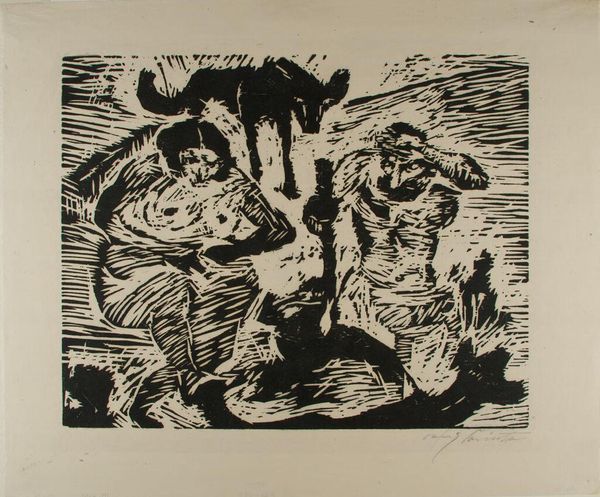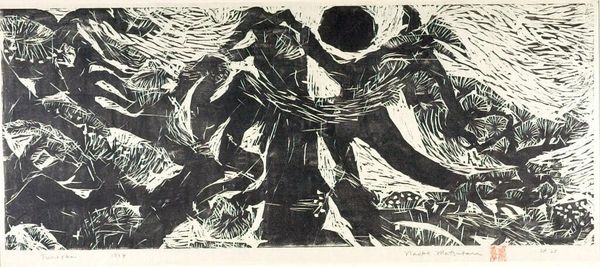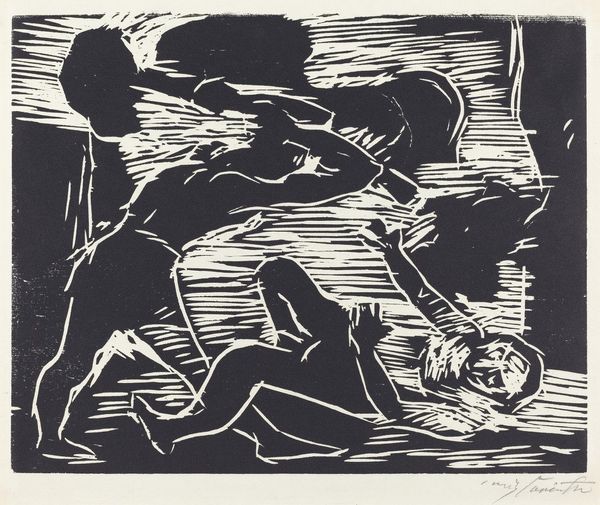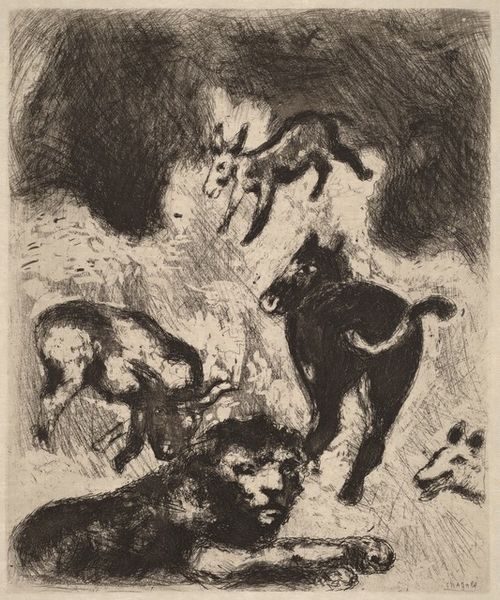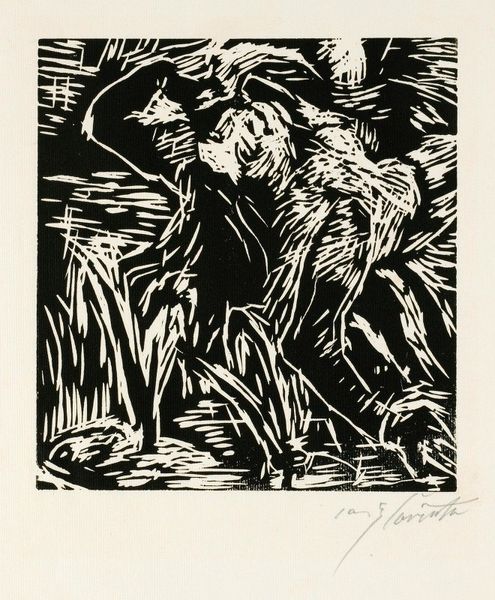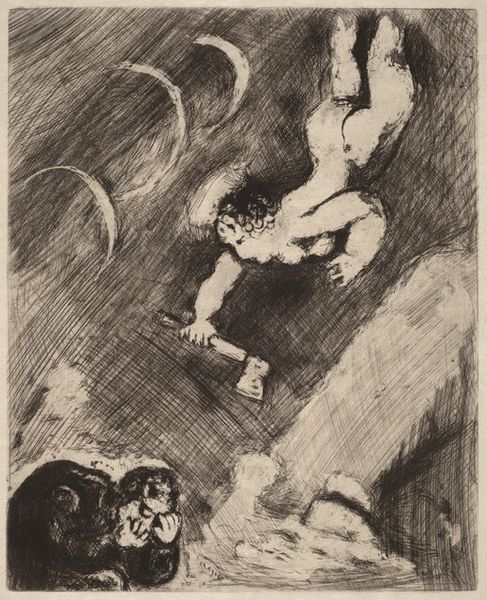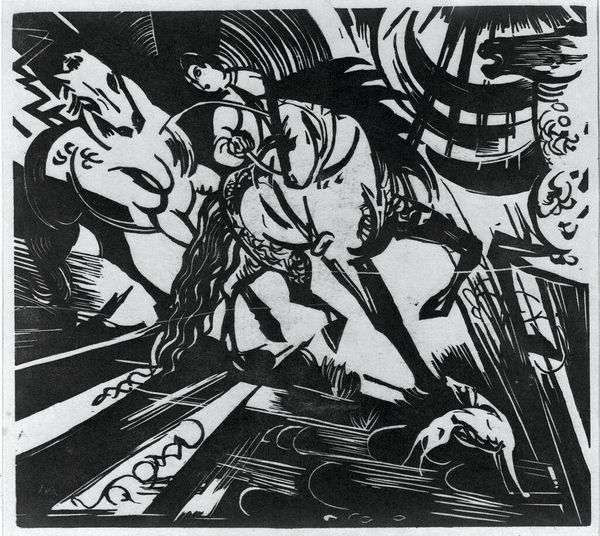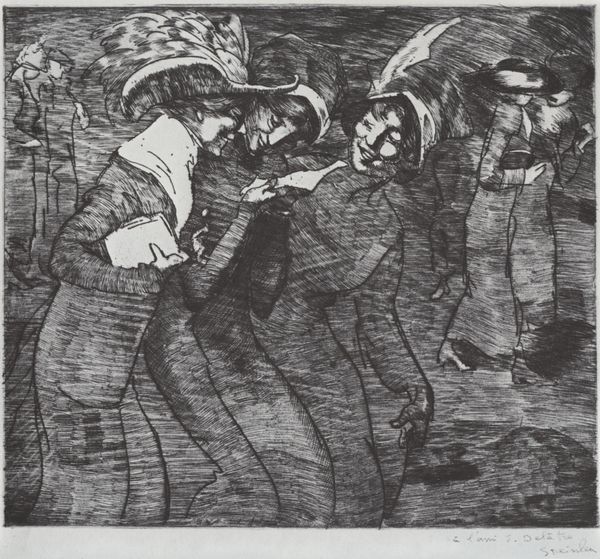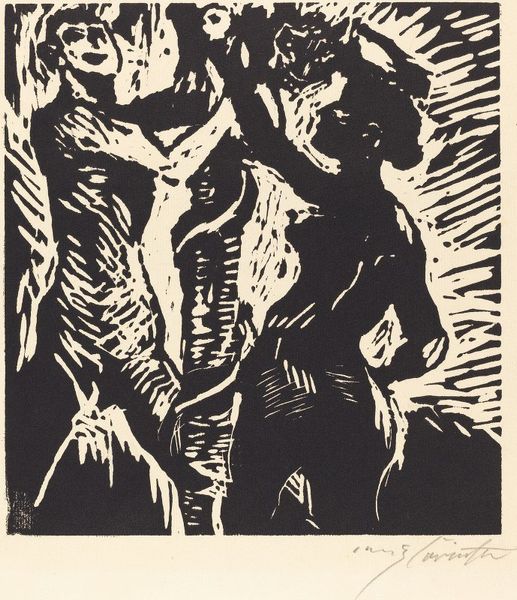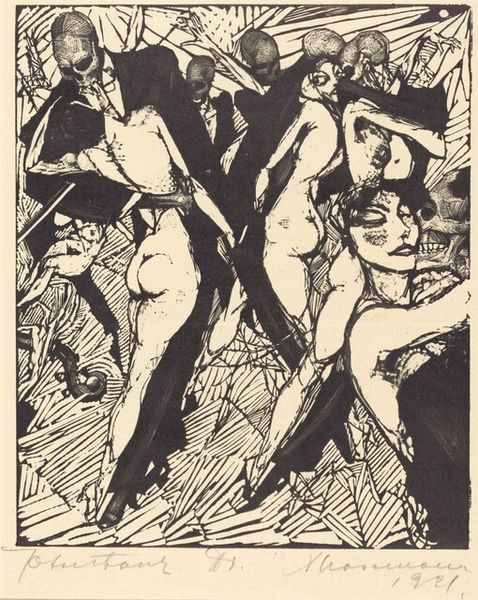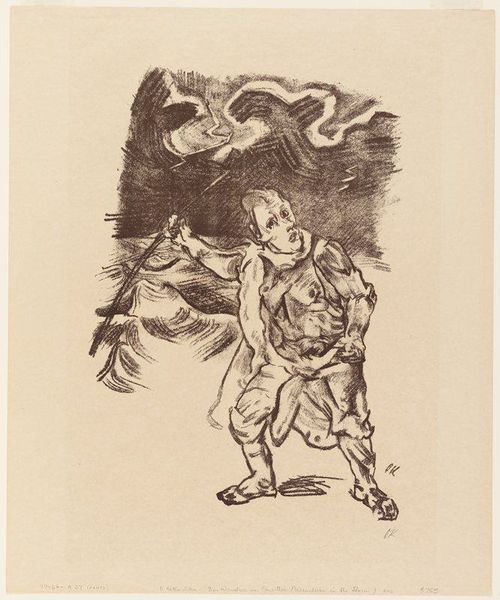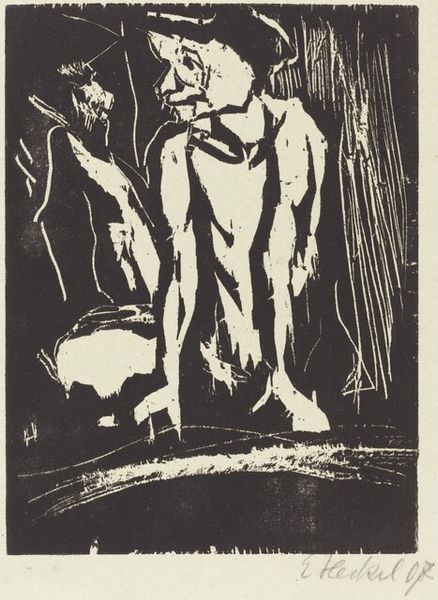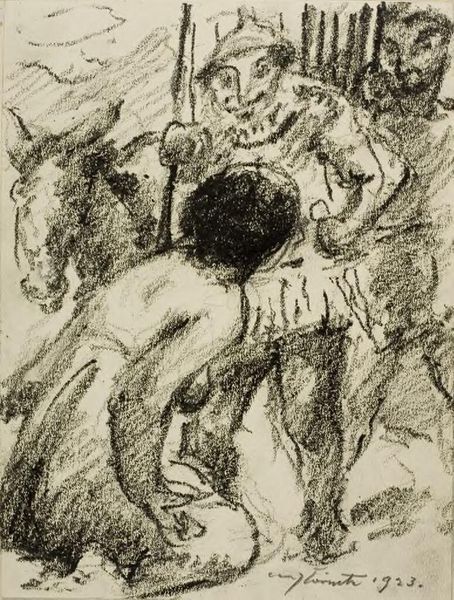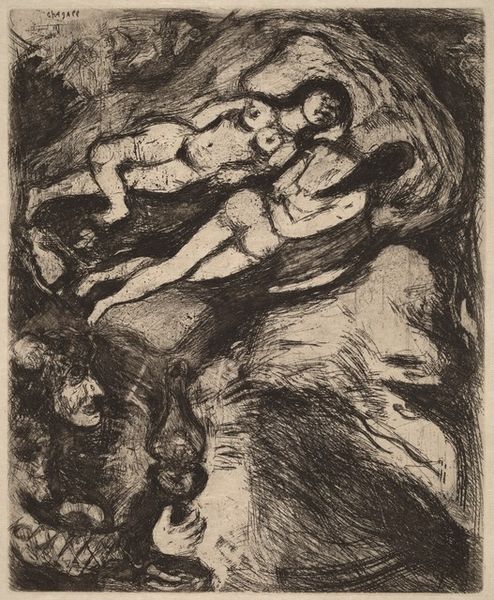
print, linocut
# print
#
linocut
#
figuration
#
linocut print
#
expressionism
#
nude
Copyright: Public Domain: Artvee
Curator: This linocut, created by Lovis Corinth in 1919, is titled "Im Schweisse Deines Angesichts." It translates to "In the Sweat of Thy Face." Editor: My first impression is starkness. The black and white contrast is so intense, it feels almost biblical in its drama. And the rough texture! You can almost feel the physical effort that went into creating this image. Curator: The title immediately suggests themes of labor and toil, of course. Given the period, it is impossible to divorce that from the post-WWI context in Germany. The economic hardship, the physical and emotional exhaustion... it's all there, etched into the very lines of the print. Look at how the figures are presented, they evoke a kind of raw, exposed vulnerability in response to forces beyond their control. Editor: Precisely. And the figures themselves— Adam and Eve? They're stripped bare, almost caricatured. The male figure shielding his eyes – it's as if he can’t bear to witness their fallen state. Notice the dog above. Perhaps the embodiment of fidelity and instinct but cast as a looming shadow here – judgement itself! The whole composition is very immediate, almost violently expressive. Corinth seems to be conveying deep anxiety regarding humanity's struggle for existence, the shift of humanity to one which knows suffering. Curator: I think you've nailed it. The expressionistic style really amplifies that sense of unease. And there's a feminist reading to be had here, as well. Where does the culpability truly lie in their expulsion? Is Eve positioned solely as the source of their downfall, or are the sociopolitical power structures bearing down upon her as well? The composition refuses easy answers. Editor: Yes, and look again at how Corinth uses light and shadow. The darkness isn't just emptiness, it is a heavy, almost palpable force. This linocut, small as it might be, operates almost as a condensed cultural and psychic record of a population in crisis after the devastations of war, clinging only to an allegorical and biblical symbol. The darkness takes over almost half of the composition, yet without which we may not feel the vulnerability of the scene. Curator: Well, delving into this piece has reminded me again how art can both reflect and refract the anxieties of a particular moment. Editor: Indeed. It is the symbolism, so starkly displayed that invites viewers to make it their own experience as much as it represents Corinth’s.
Comments
No comments
Be the first to comment and join the conversation on the ultimate creative platform.
